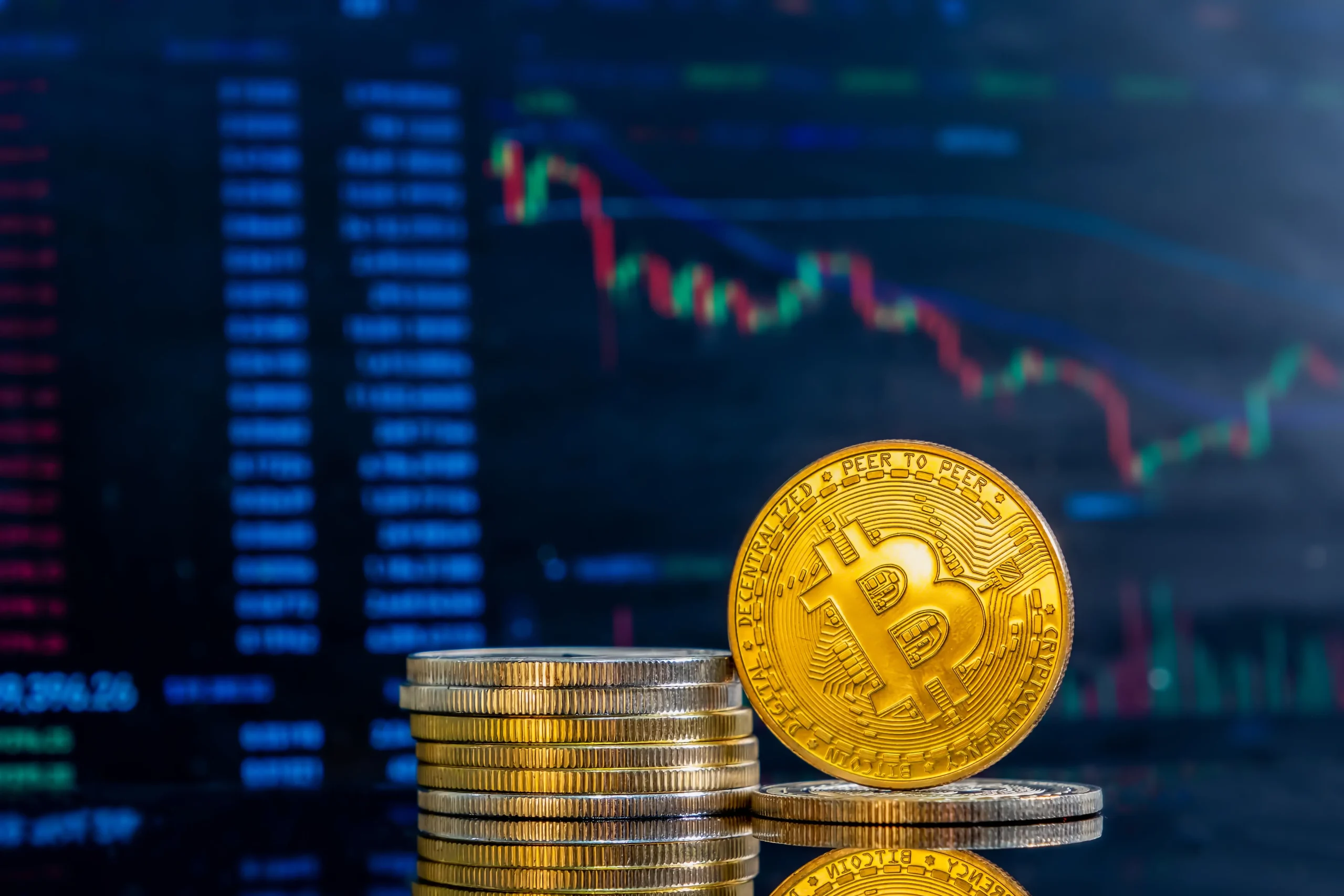Here’s Why Bitcoin Could Hit $100,000 Soon
16.07.2024 19:00 1 min. read Alexander Stefanov
Renowned economist Timothy Peterson recently shared his insights on Bitcoin's future price trajectory in a statement posted on the social media platform X.
Peterson’s analysis suggests that Bitcoin could see a potential 59% return in the short term if the 6-month median return dips below -20%, potentially driving its price to $100,000 by January.
Further to the attached, here is the short-term trading cycle for #Bitcoin. The median 6-month forward return when this indicator is below -20% is +59%, which would put Bitcoin at $100,000 by January.
All of my work is based on genuine #economic research which can be found at… https://t.co/2cb1zpcCIv pic.twitter.com/eMvwVGoXqa
— Timothy Peterson (@nsquaredvalue) July 15, 2024
He emphasized the significant influence of high-yield (HY) corporate bond rates on Bitcoin’s price dynamics, noting a direct correlation between HY rates and Bitcoin prices.
According to Peterson, higher HY rates indicate increased investor risk appetite, prompting greater investments in assets like Bitcoin.
Peterson’s analysis is based on historical trends, particularly comparing Bitcoin price movements with the ICE BofA US High Yield Index Effective Return, which he considers pivotal in predicting Bitcoin’s price shifts. As HY rates decline, Peterson observes a tendency for Bitcoin’s price to rise substantially.
Moreover, Peterson highlighted a recent record high in Cumulative Net ETF Flows, reinforcing his outlook on Bitcoin’s potential bullish trajectory.
-
1
Metaplanet Raises $515M in First Step Toward Massive Bitcoin Accumulation
25.06.2025 20:00 1 min. read -
2
Trump-Linked Truth Social Pushes for Bitcoin-Ethereum ETF as Crypto Strategy Expands
25.06.2025 19:00 2 min. read -
3
Bitcoin Hashrate Declines 3.5%, But Miners Hold Firm Amid Market Weakness
27.06.2025 21:00 2 min. read -
4
Bitcoin’s Price Closely Mirrors ETF Inflows, Not Corporate Buys
26.06.2025 11:00 2 min. read -
5
Crypto Company Abandons Bitcoin Mining to Focus Entirely on Ethereum Staking
26.06.2025 20:00 1 min. read
Bitcoin ETFs See $1B Inflow as IBIT Smashes Global AUM record
Spot Bitcoin ETFs recorded a massive influx of over $1 billion in a single day on Thursday, fueled by Bitcoin’s surge to a new all-time high above $118,000.
Bitcoin Outlook: Rising U.S. Debt and Subdued Euphoria Suggest More Upside Ahead
As Bitcoin breaks above $118,000, fresh macro and on-chain data suggest the rally may still be in its early innings.
Analysis Firm Explains Why Bitcoin’s Breakout Looks Different This Time
Bitcoin’s surge to new all-time highs is playing out differently than previous rallies, according to a July 11 report by crypto research and investment firm Matrixport.
Bitcoin Reaches New All-Time High Above $116,000
Bitcoin surged past $116,000 on July 11, marking a new all-time high amid intense market momentum.
-
1
Metaplanet Raises $515M in First Step Toward Massive Bitcoin Accumulation
25.06.2025 20:00 1 min. read -
2
Trump-Linked Truth Social Pushes for Bitcoin-Ethereum ETF as Crypto Strategy Expands
25.06.2025 19:00 2 min. read -
3
Bitcoin Hashrate Declines 3.5%, But Miners Hold Firm Amid Market Weakness
27.06.2025 21:00 2 min. read -
4
Bitcoin’s Price Closely Mirrors ETF Inflows, Not Corporate Buys
26.06.2025 11:00 2 min. read -
5
Crypto Company Abandons Bitcoin Mining to Focus Entirely on Ethereum Staking
26.06.2025 20:00 1 min. read


